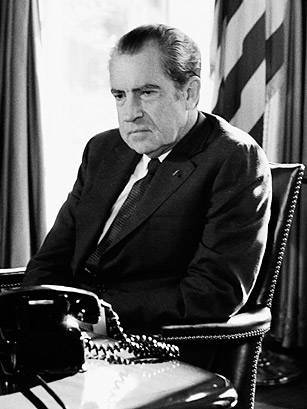
Starting in 1971, President Richard Nixon began to secretly tape conversations and telephone calls in multiple locations, including the Oval Office. When the Watergate scandal broke, the case's special prosecutor and defendants sought those tapes. Nixon, however, said he was immune from any subpoenas, claiming he had executive privilege to withhold information from other government branches. The President argued he needed to preserve confidential communications within the executive in the name of national interest. The Supreme Court resoundingly disagreed with Nixon in an 8-to-0 ruling, saying that neither separation of powers nor a general need for confidentiality is sufficient for absolute and unqualified executive privilege. The tapes were released and, soon after, Nixon resigned.